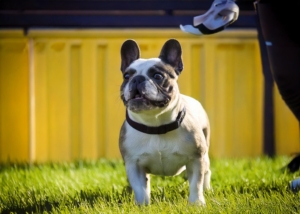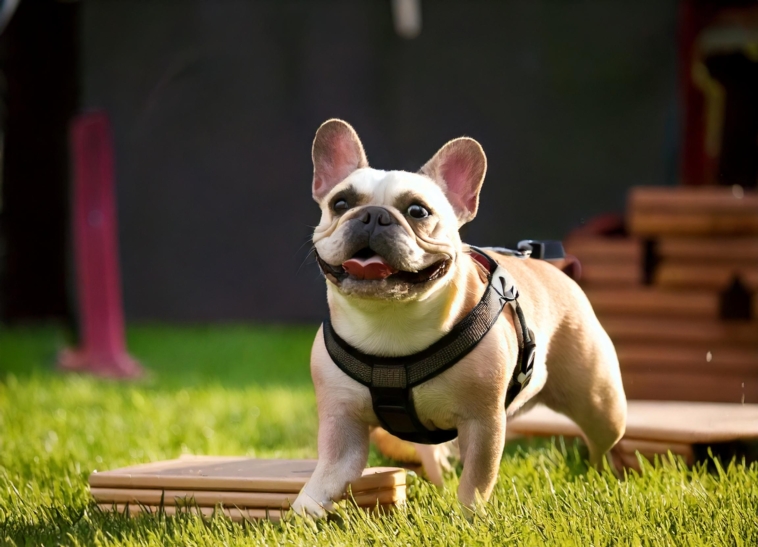Last updated on October 24th, 2024
Here’s an overview:
Introduction to mastering French bulldog training
Understanding your French bulldog’s personality and traits
Establishing Systematic and Organized Dog Training Schedule
Basic Commands That Should Be Taught to Each French Bulldog Owner
Positive Reinforcement Techniques
Socialization Strategies for French Bulldogs
Housebreaking Your French Bulldog Rigidness and Patience Are the Keys.
Crate Training Tips and Tricks
Leash Training for French Bulldogs
Preventing and Addressing Behavioral Issues
Fun Activities to Enhance training and mastering of French bulldog
The Importance of Patience and Persistence
Using Professional Training Resources
How to Maintain Training Success Long-Term
Introduction to mastering French bulldog training
Successfully training any French Bulldog requires an appreciation of their distinctive temperament. This lovely breed is smart, but they can also be a bit standoffish and it is best if you use proper and consistent positive reinforcement.
Begin with simple commands and use food and/or verbal praise as motivation. Do not neglect proper socialization; brining your French Bulldog out to different types of places, around different people and animals will help them become more well-rounded.
Daily lessons that include your patience and plenty of fun will make the bond stronger, making sure that your French Bulldog becomes an enjoyable pet. So, to sum it up, getting the hang of their training is really one way of forming a happier, healthier and a more balanced way of living.
Understanding your French bulldog’s personality and traits
Affectionate bulldogs are the French breed bulldogs. They require a lot of attention and interaction with humans.
Key Traits:
- Affectionate: They attach emotionally to their masters.
- Playful: Loves to play with people and challenges.
- Stubborn: Often does not comply with the request unless it is repeated.
- No-strain temperament exercise: These dogs are ideal for apartments but should go out to relieve themselves periodically.
- Talkative: They have the ability to express wants through barking and other sounds.
- Sociable: Friendly disposition toward other pets and kids.
Apprehending these traits assists in determining the effective and harmonious methods of training pets.
Establishing Systematic and Organized Dog Training Schedule
Establishing Systematic and Organized Dog Training Schedule is one of the factors necessary to achieving training success with the French bulldog breed. This helps the dog comprehend what is expected and to establish routines. The recommendations include:
- Define days and times: Conduct training at specific hours each day in order to create a cycle.
- Short sessions: limit training duration to 10-15 minutes within which the learner remains attentive.
- Repetition: Every command practiced should be practiced over and over again until it’s habitual.
- Balanced timetable: Time tables should be designed in such a way that training is coupled with play and rest.
- Regular breaks: Provide breaks between exercises to prevent tiredness.
- Monitor effective training: Combine a training of techniques with a log book about what was successful and what not.
Structured schedules promote learning and growth.
Basic Commands That Should Be Taught to Each French Bulldog Owner
French bulldog training and mastering has to be characterized with level of patience and consistency. Here are important commands that every French bulldog must know.
- Sit: Some psychological and behavioral authority is achieved through this command.
- Stay: This is important for the safety of the dog and controlling its behavior in different situations.
- Come: The command to be sure the dog will come back is important whenever the dog is in an off-leash area.
- Leave It: This command prohibits the dog from picking up any non-designated items or objects.
- Down: Relieves the anxiety of the dog and has applications in various gatherings.
- Heel: Safeguards the proprietor from unnecessary stress whilst walking the dog with a leash.
Positive Reinforcement Techniques
Positive reinforcement techniques appear to be very effective when training and mastering of French Bulldog. Rewarding a desired action with a treat or praise works effectively.
- Consistency: Always enforce the same reward behavior for every positive behavior that a dog exhibits. This will ensure that the dog knows what specific actions are bringing about rewards.
- Timing: Enjoy rewards for effective behaviors straight after performing them. Receiving rewards for some action a long time later may make the dog forget what action earned it the reward.
- Praise: In the case of using a treat, there are verbal compliments such as “Good Boy” or “Good Girl”.
- Variety of Rewards: Use different kinds of incentives on different days.
- Gradual Removal: Eventually reduce the usage of treats, and maintain good behavior with verbal praise instead.
Socialization Strategies for French Bulldogs
Socialization is essential in the behavior and adjustment of a French Bulldog. Effective socialization will make a French Bulldog an ideal, loving pet.
Strategies:
- Early Exposure: The puppy should be exposed to different places, sounds, and sites at a young age as possible.
- Interaction Control: Implement playdates with other canine friends, so that they learn to socialize with other pets in a positive manner.
- Positive Approach: Whenever the dog is engaged with people and they exhibit good traits use treats and compliments to encourage them.
- Routine Clarity: As much as possible, keep arrangements for socialization on a regular basis in order to assist the puppy.
- Supervised Introduction: Always keep a watchful eye on initial introductions to ensure that everything goes smoothly and the first interactions are pleasant.
- Going out: Let the French Bulldog spend time outside at the parks or other public places to meet various conditions.
Approach to a Stubborn Dog
Consistency of practice is fundamental. Always make clear the rules that have been laid down and do not create a mixed picture. Do not use the most basic type of training:
- Build the required behaviors: High-value treats, praise, or tactful play.
- Do not cave in: Do not respond to solicitation or fuss.
Building up the belief that persistence will bear fruit is the best approach with stubborn dogs. Perhaps short or fast moving training sessions are what a dog focuses on best. More attention should be paid to proper containment:
- Cuddle: Make sure that deep inside the crate is always safe.
- Slowly and gradually show it to them: Exposing the crate to the dogs should be carried out carefully to avoid creating any form of stress.
Make it a habit to go for prolonged walks or runs to exhaust excessive energy thus helping dispel instances of stubbornness.
Housebreaking Your French Bulldog Rigidness and Patience Are the Keys.
French bulldogs come with individualistic tendencies hence require a patient owner to house train them. There should be a fixed with feeding times, if meals are provided, the timing should however not be fixed on the same time everyday for all days. After meals, take the dog out to the same spot that has been used for bathroom breaks.
- Consistent Timing: The order of this vide sequence may be the same for both videos. The first one can be recorded upon waking up in the morning, after meals and before sleep.
- Positively Rewarded: Praise or treat the French bulldog when it makes use of the toilet in the appropriate location.
- Supervision: There is need to supervise a young puppy at all times when inside the house, so that any severity of messes can be treated lightly.
- Crate Training: Make use of a crate to restrict the dog’s movement space as dogs instinctively do not pee or poop where they sleep.
Implementing these strategies will facilitate successful housebreaking.
Crate Training Tips and Tricks
There are some tips for every puppy that is kept must successfully go through crate training as one of the basic training principles. Use the following suggestions to arrive at positive results:
- Pick The Right Size: In picking a crate ensure that it is big enough for the dog to be able to stand, turn and lie down.
- Decorate Using Soft Windsock. Make sure the crate is filled with soft sheet or throw pillows with a few toys.
- Gradual Introduction: The door of the crate must be left unlocked at the start so that the dog can get accustomed to being inside the cab with the door of the cab.
- Stuff Toys in the Box: Use positive reinforcement and put Yummy Bastard cubes in there.
- Establise Clockwork: Make sure that when crated, it coincides with feeding and nap times.
Leash Training for French Bulldogs
Leash training French Bulldogs is not an easy task and calls for some level of perseverance. Indoor training with lesser distractions is recommended. Employ a small leash and soft undercarriage type harness. Start without the leash, instead use the harness for a while. As the dog gets more comfortable with the idea of using a leash, start incorporating the leash, but don’t pull. Lure them with treats and praise to get them to move.
Steps for effective leash training
- Start in a cozy room, which is not crowded with people and familiar to the dog.
- Now use the ever so contentious synchronized leash.
- Let the dog walk around with the leash still attached whilst you are tethered.
- Use positive reinforcement to elicit movement towards the front.
- Ensure that leash walking is done daily, with a longer walking time each day until the ideal duration has been met.
Preventing and Addressing Behavioral Issues
There are some behavioral problems that most French bulldogs exhibit and to prevent these behavioral problems from becoming drastic it is vital to make steps to prevent them from occurring.
Mastering French Bulldog
- Train the dog on following instructions consistently.
- Employ the positive reinforcement strategy.
Socialization
- They should be taken to different places or people at an age appropriate to them.
- ‘Playdates’ with another dog should be arranged.
Mental Stimulation
- Employ the use of puzzling and other brain stimulating toys such as adventure boxes.
- Try and teach them new tricks to keep them working.
Exercise Regimens
- Make a point to include short walks and play every day.
- Monitor levels of physical activity.
Behavior Modification Techniques
- Pour enforcer unwanted behaviors as quickly as possible.
- Ask for help from a professional trainer if necessary.

Fun Activities to Enhance training and mastering of French bulldog
Whether one incorporates some extra fun time into training sessions or sticks to a structured routine, a lot can be achieved in terms of the learning process for the French Bulldog.
Additionally, mixing in playtime can enhance motivation, making the experience more enjoyable for both the dog and the owner. Consequently, this approach not only reinforces learning but also strengthens the bond between them.
Toys That Are Interactive
- Give your dog a puzzle toy to work on.
- Get chewing toy’s which has the ability to release cubes of food, they will love it.
Agility Course
- Make a simple course with e.g. tunnels and hurdles.
- While encouraging them to move, place the reward in areas where they have to navigate to get to.
Fetch Games
- Incorporating words like ‘sit’ and ‘stay’ prior to tossing the ball is a wise idea.
- Use as many different types of toys as possible so that attention does not drop out.
Hide and Seek
- Conceal snacks for them and make them look for them.
- Make them find easier treats at first and make them seek for harder ones later.
Playdates
- Schedule with other dogs for enriching activity skills.
- Oversee to circumvent unpleasant encounters.
The Importance of Patience and Persistence
Training and mastering of French Bulldog in an efficient way requires a good number of patience and perseverance. These dogs are very clever but can be a bit of bony, and therefore one need to be persistent.
- Repetition: People expect the dog to execute the commands, and for this reason, commands are repeated for the dog to learn.
- Positive Reinforcement: Some students would understand and retain that good behavior will gain them something and will make them do it again.
- Consistency: Practicing a habit on a regular basis reinforces it.
- Calm Demeanor: Frustration is avoided with the right mindset before a training session.
- Gradual Progress: By gradually raising the bar, success is built upon the former.
Following these rules significantly helps improve and speed up the training and mastering process for both the owner and the French Bulldog. Moreover, adhering to these guidelines creates a more effective learning environment, fostering better communication and understanding between them.
As a result, both the pet and owner can enjoy a more rewarding experience throughout the training journey.
Using Professional Training Resources
The use of professional training and mastering French bulldog training can maximize the extent to which a French bulldog can be trained. In most cases, expert trainers are very useful since they come with a range of new information or ideas.
Benefits of Mastering French Bulldog Training
- Specialized Techniques: Clients will be exposed to better techniques which have been tailored for French Bulldogs.
- Customized Training Plans: Different trainers will use the considerate different breeds of dogs.
- Behavior Correction: There are some behavioral problems that may require the help of a professional.
Mastering French Bulldog:
- Professional Dog Trainers: Schedule a training session by joining one-on-one classes with qualified trainers.
- Training Classes: Socialization is facilitated through attendance of group classes.
- Online Courses: Training provided by reliable trainers includes learning modules that can be done from anywhere at any time.
- Books and DVDs: Some informative materials are written by professionals.
How to Maintain Training Success Long-Term
Achieving long-term training success with a French Bulldog requires ongoing effort and commitment from both trainers and owners. By actively participating in the training process, everyone involved can ensure that the dog develops good habits and behaviors over time.
- Consistency: Carrying out training frequently assists in solidifying the acquired behaviors.
- Positive Reinforcement: The use of treats or positive comments is a must for good behavior.
- Routine: Follow the natural sequence of events on a day to day basis for order in the home.
- Engagement: Teach your dog new commands and tricks so that they do not get bored mentally.
- Healthy Lifestyle: Be sure to eat a well rounded meal, with regular exercise.
Article by: Dr. Sajawal Amin (Deep Researcher)




